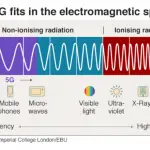Last Updated on 12 months by Francis
Negative ions are often touted as having numerous health benefits, such as improving mood and mental clarity, boosting the immune system, and reducing allergies and asthma symptoms. However, recent studies have suggested that an excess of negative ions can actually have negative effects on health, including increasing the risk of respiratory problems, headaches, and depression. In this article, we will explore the potential risks and benefits of negative ions and whether they are truly bad for our health.
Contents
The Science Behind Negative Ions
Negative ions are atoms or molecules that have gained an extra electron. They are abundant in nature, particularly in areas such as forests, mountains, and waterfalls. Negative ions are known to have a positive effect on our mood and overall wellbeing. They are said to help reduce stress, improve sleep, and boost energy levels. However, there are also concerns that negative ions may have negative health effects.
The Benefits of Negative Ions
Negative ions are believed to work by neutralizing free radicals in the body, which can cause cell damage and contribute to the development of diseases such as cancer. They are also said to help improve the immune system, reduce inflammation, and improve blood circulation.
The Potential Negative Effects of Negative Ions
Some studies have suggested that negative ions may have negative health effects. For example, research has shown that exposure to high levels of negative ions may cause headaches, dizziness, and other health problems. Additionally, some experts have raised concerns about the potential for negative ions to interact with other chemicals in the air, such as pollutants, and create harmful byproducts.
The Debate Around Negative Ions and Health
The Evidence for Negative Ions
There is some evidence to suggest that negative ions may have positive health effects. For example, a study published in the Journal of Alternative and Complementary Medicine found that exposure to negative ions was associated with a reduction in symptoms of depression and anxiety. Another study published in the Journal of Psychiatric Research found that negative ion therapy was effective in reducing symptoms of seasonal affective disorder.
The Evidence Against Negative Ions
Despite these positive findings, there is also evidence to suggest that negative ions may have negative health effects. For example, a study published in the International Journal of Epidemiology found that exposure to high levels of negative ions was associated with an increased risk of lung cancer. Another study published in the Journal of Aerosol Science found that negative ions may react with common air pollutants to create harmful particles.
What You Need to Know About Negative Ions
How to Get More Negative Ions in Your Environment
If you’re interested in reaping the potential benefits of negative ions, there are several ways to increase the number of negative ions in your environment. Spending time in nature, particularly in areas with waterfalls, can help. Using a negative ion generator, which releases negative ions into the air, is another option.
How to Reduce Your Exposure to Negative Ions
If you’re concerned about the potential negative health effects of negative ions, there are also steps you can take to reduce your exposure. For example, avoiding areas with high levels of negative ions, such as near waterfalls or during thunderstorms, may be helpful. Additionally, using an air purifier can help remove negative ions and other pollutants from the air.
The Bottom Line on Negative Ions
Overall, the evidence on negative ions and health is mixed. While some studies suggest that negative ions may have positive health effects, others have raised concerns about potential negative effects. If you’re interested in using negative ions to improve your health, it’s important to do your research and talk to your healthcare provider. Additionally, it’s always a good idea to take steps to reduce your exposure to negative ions and other potential environmental toxins.
FAQs – Negative ions bad for health
What are negative ions?
Negative ions are air particles that contain an extra electron, giving them a negative charge. They are created when water molecules break apart through evaporation, sunlight, or moving air. Negative ions are abundant near waterfalls, oceans, and in forests.
Are negative ions bad for health?
No, negative ions are not bad for health. In fact, they have several health benefits. Negative ions help in increasing the flow of oxygen to the brain, which results in better mental alertness and overall well-being. They also improve lung function, reduce stress and anxiety, and boost the immune system.
Why do people think negative ions are bad for health?
There are misconceptions around negative ions and their effects on health. Some people believe that negative ions cause headaches, dizziness, or other health problems. However, there is no scientific evidence to support these claims. Negative ions have been found to be beneficial for health and are not harmful in any way.
Can too many negative ions be harmful?
There is no known harm from an excess of negative ions. Negative ions are naturally occurring and are present in the environment, so our bodies are adapted to handle them. However, if there are too many negative ions present in a particular environment, it can feel uncomfortable, and people may experience headaches or respiratory issues. But that is due to the high concentration of negative ions, not the negative ions themselves.
Are negative ions effective in purifying the air?
Negative ions can help in purifying the air by attaching themselves to particles like dust, pollen, and mold, which makes them heavy and causes them to fall to the ground, making the air cleaner. Negative ions can also work in conjunction with air filters and can be used to combat indoor air pollution.
In summary, there are several health benefits of negative ions, and they are not harmful to health. While there are misconceptions around negative ions, it is essential to understand their benefits thoroughly. People in general can benefit from spending more time in nature and being near waterfalls or oceans to experience negative ions’ positive effects.


.jpg)
.jpg)



